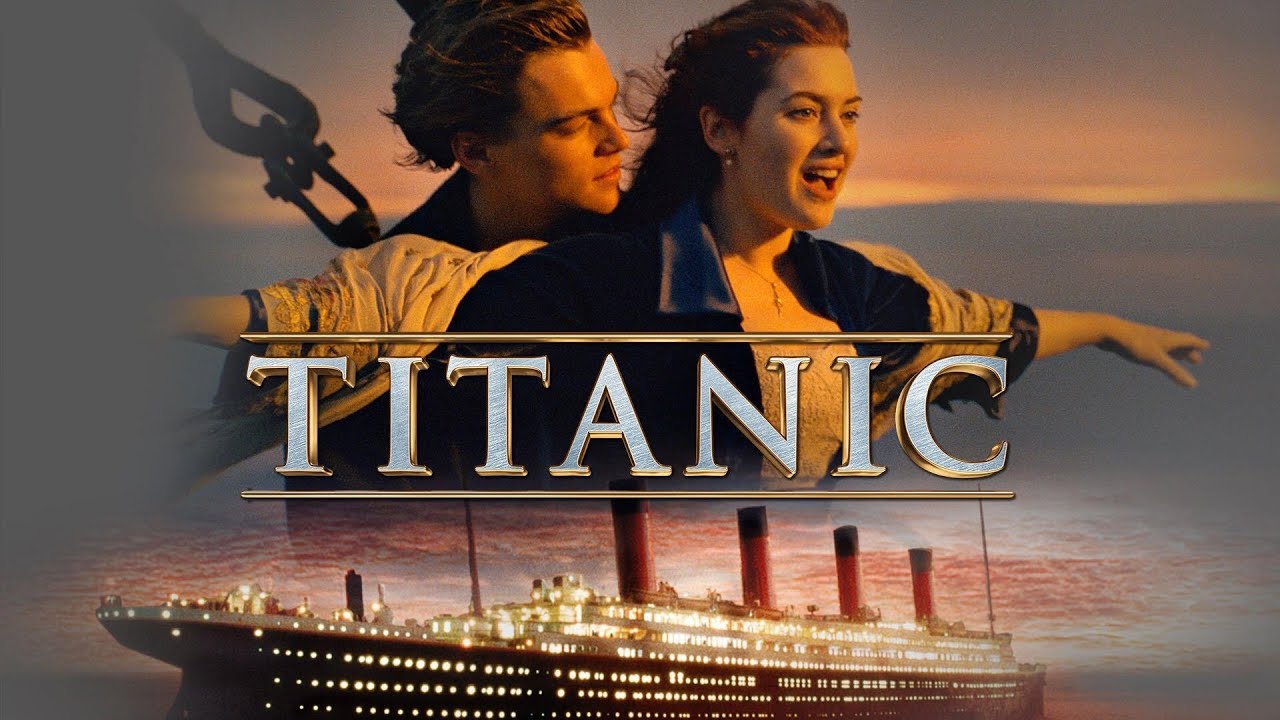Titanic 1997

Titanic (1997)
Review:
Titanic, directed by James Cameron, is an epic romance and disaster film that captivated audiences worldwide with its tragic love story set against the backdrop of one of history’s most infamous maritime disasters. The film follows the ill-fated voyage of the RMS Titanic in 1912, focusing on the relationship between Jack (Leonardo DiCaprio), a free-spirited artist, and Rose (Kate Winslet), a young woman trapped in an engagement to a wealthy, controlling man. Their love story unfolds amidst the opulence and looming tragedy of the Titanic’s maiden voyage, culminating in the ship’s catastrophic sinking.
One of the most enduring aspects of Titanic is its scale. Cameron’s attention to historical detail in recreating the Titanic itself is staggering. The set design and visual effects bring the ship to life in all its grandeur, from its luxurious interiors to the expansive deck. The meticulous recreation of the sinking is a masterpiece of visual effects, blending practical effects with groundbreaking CGI. The disaster scenes—specifically the ship breaking apart and sinking into the icy Atlantic—are stunning in their intensity and execution, and they remain some of the most iconic sequences in film history.
The romance at the heart of the story, while somewhat formulaic in its setup, is incredibly engaging, largely due to the chemistry between DiCaprio and Winslet. Their performances elevate the material, transforming what could have been a cliché love story into something deeply emotional and moving. Jack and Rose’s connection is heartfelt, sincere, and palpable, making their tragic fate all the more devastating. The film explores themes of class disparity, social expectations, and personal freedom, which are embodied in the characters’ relationship. Jack represents freedom and the possibility of a different life, while Rose is initially confined by the expectations of her aristocratic family and her controlling fiancé, Cal (Billy Zane). The film’s exploration of these contrasts gives their romance a depth that resonates beyond mere attraction.
The supporting cast also brings depth to the story. Billy Zane’s portrayal of the jealous, entitled Cal adds an element of tension and antagonism, while Kathy Bates’ role as Molly Brown, a real-life Titanic survivor, provides some levity and heart. Danny Nucci and Jonathan Hyde, who play members of the ship’s crew, also contribute to the overall narrative, each offering glimpses of the broader human experience aboard the ship.
James Horner’s score is another standout feature of the film. The iconic theme song, “My Heart Will Go On” by Celine Dion, became an anthem of the film and remains one of the most recognizable songs in cinematic history. The music perfectly complements the emotional highs and lows of the film, heightening the sense of romance, loss, and tragedy.
However, Titanic is not without its criticisms. Some argue that the film’s pacing slows down in the middle act, particularly in the moments leading up to the sinking, where the romantic melodrama sometimes feels a bit drawn-out. Additionally, the depiction of some of the ship’s passengers and crew can occasionally veer into caricature, with certain characters’ actions and dialogue feeling overly dramatic. Despite these minor flaws, the sheer scope of the production, the emotional weight of the narrative, and the breathtaking visuals more than make up for them.
In conclusion, Titanic is a sweeping, grand-scale film that blends romance and disaster in a way that has made it a cinematic touchstone. Its compelling love story, unforgettable visuals, and heart-pounding disaster scenes create a cinematic experience that continues to captivate audiences decades after its release. It is a film that balances spectacle with emotion, and it remains one of the highest-grossing films of all time for good reason. Whether for its historical accuracy, its poignant romance, or its tragic conclusion, Titanic is a timeless masterpiece that leaves a lasting impact on all who experience it.











